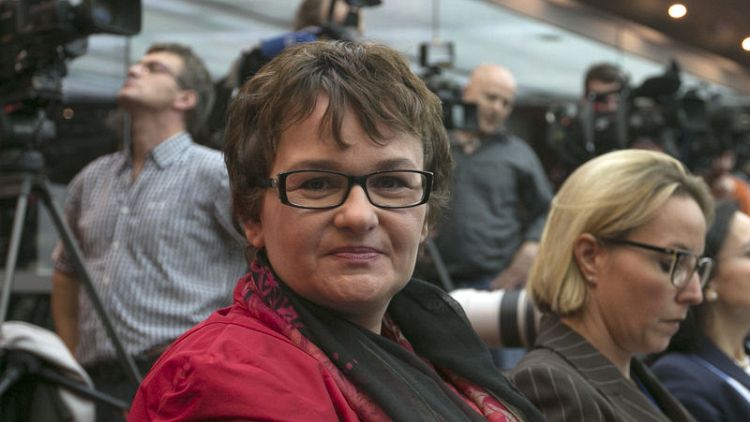NEW YORK (Reuters) - The euro zone's domestic economy remains resilient and financing conditions are "excellent" but imported weakness, such as the global trade war, is weighing on the bloc, European Central Bank board member Sabine Lautenschlaeger said on Thursday.
The conflict between the United States and its trading partners, especially China, together with uncertainty over Britain's mode of exit from the European Union, have weakened euro zone growth, Lautenschlaeger said.
"In the euro area, we do see some softening in growth, but nevertheless it's growth," she said at a New York event sponsored by the Council of Foreign Relations.
Overall growth among the 19-nation bloc is running about 1.1%-1.2% in 2019, she said.
Some euro zone members including France and the Netherlands are on "very resilient" growth paths, while others such as Germany and Italy are weakening, especially in their manufacturing sectors which are related to trade and Brexit, she said.
Offsetting the risks from trade and Brexit are rising wages, a solid service sector and a banking system flush with cash as a result of ECB's loose monetary policy, Lautenschlaeger said.
The ECB approved a fresh stimulus package last week but critics argue the bank's few remaining weapons lack potency so the measures will have only limited impact in boosting a persistently low inflation rate.
Lautenschlaeger, who was the vice president of Deutsche Bundesbank in 2011-2014, added that central banks are not the "only game in town," which means that others, including governments, need to take on a bigger role in lifting growth.
"Other stakeholders have to step up too," she said. "I'm talking about using fiscal space, when you have it in a sensible way, meaning not just using it but in something in which you have a medium- to long-term growth impact."
Reuters reported earlier this month that Germany, euro zone's largest economy, is considering a spending plan on infrastructure and climate protection in an effort to avert a recession.
(Reporting by Richard Leong in New York; Writing by Balazs Koranyi; Editing by Andrew Heavens and Matthew Lewis)



